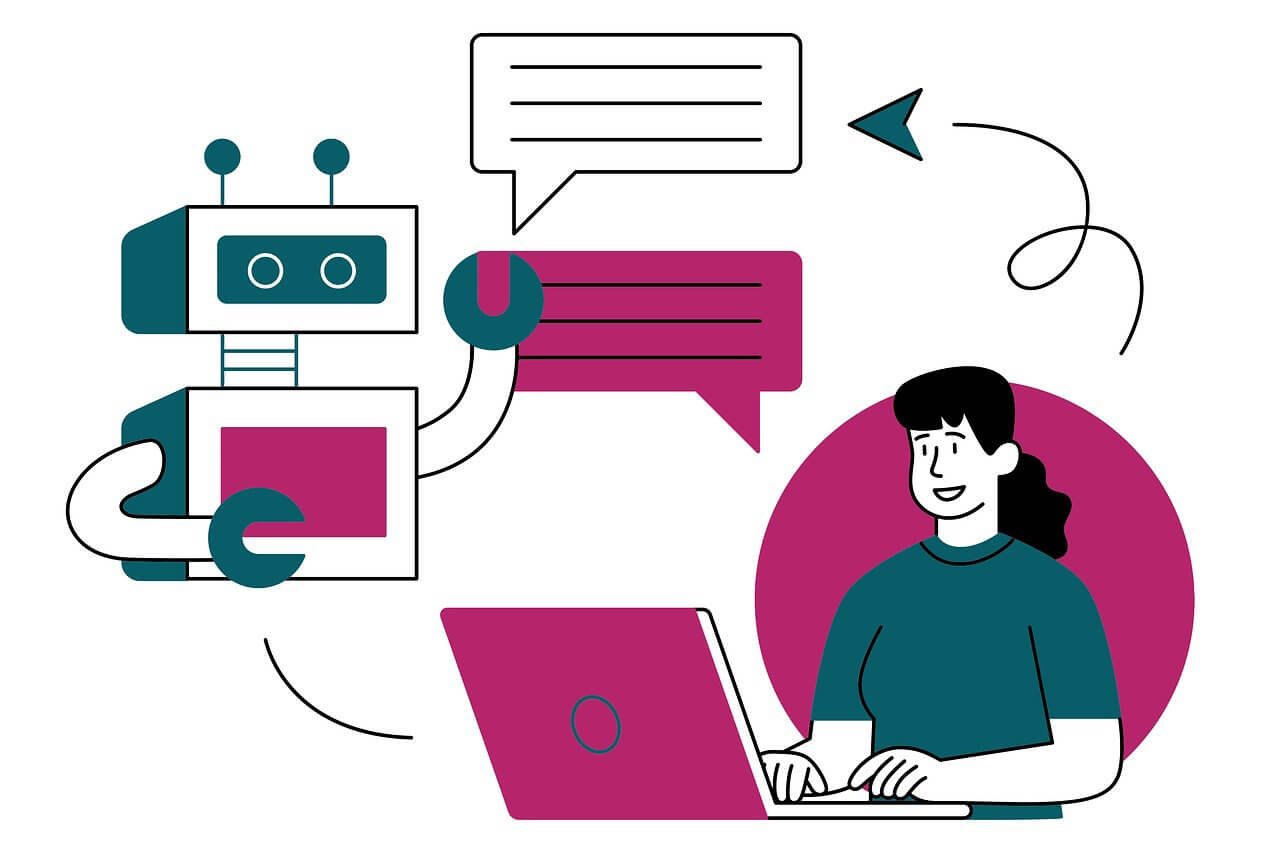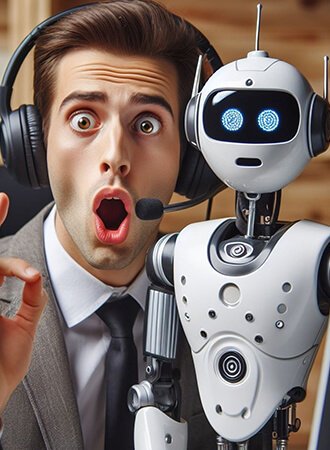
In the digital age, customer service has changed significantly due to technology. Businesses now face the challenge of meeting customer expectations in an always-connected world. This has led to a growing debate about using AI chatbots versus human agents.
AI chatbots provide speed and efficiency in handling customer inquiries, while human agents offer a more personalized and empathetic approach. Both have strengths and weaknesses, raising the important question: how can companies find the right balance?
Advantages of AI Chatbots in Customer Support
1. 24/7 Availability
AI chatbots provide round-the-clock support, ensuring customers receive help anytime. This capability boosts customer satisfaction, especially for businesses with a global audience across different time zones.

2. Quick Response Times
Chatbots deliver instant responses to customer queries, significantly reducing wait times. Statistics show that 70% of consumers prefer interacting with chatbots for quick answers, highlighting their efficiency.
3. Handling Repetitive Tasks
Chatbots automate routine inquiries, allowing human agents to focus on complex issues. This ability to manage multiple interactions simultaneously helps businesses scale their customer service without adding resources.
4. Cost-Effectiveness
Implementing chatbots can lead to significant cost savings. Compared to human agents, chatbots require a lower initial investment and incur fewer operational costs. By automating tasks, businesses can reduce hiring and training expenses while maintaining high service quality.
Disadvantages of AI Chatbots
While AI chatbots offer many benefits, they also present challenges that can affect customer satisfaction and service quality.
Lack of Empathy and Personalization: Chatbots often struggle with emotional intelligence, making it hard to provide empathetic support. For example, when a customer is upset about a delayed order, a chatbot may not offer the emotional reassurance a human agent could provide.
Difficulty Handling Complex Queries: Many customer service issues require nuanced understanding. Chatbots typically follow predefined scripts and may falter with multi-part questions or unique problems, leading to customer frustration.
Potential for Misunderstandings: Ambiguous language can cause chatbots to provide irrelevant or inappropriate responses. For instance, a chatbot might misinterpret a simple query due to vague phrasing, leading to increased customer dissatisfaction.
These limitations highlight the need for a balance between chatbot use and human support to ensure a positive customer experience.
Human Agents in Customer Service
1. Empathy and Personalized Interactions
Empathy is essential in human-led customer service. Human agents excel at active listening and crafting personalized responses, making customers feel heard and valued. Unlike automated systems, they can adapt their communication to meet each customer’s emotional needs.
2. Ability to Handle Complex Issues
Human agents are skilled at solving multifaceted problems that often elude chatbots. Whether providing emotional support or navigating intricate technical issues, human agents bring emotional intelligence and critical thinking skills. These capabilities are crucial for handling negotiations and resolving conflicts.
3. Building Customer Trust
Trust is vital for long-term customer relationships. Through transparent communication and consistent follow-ups, human agents build trust and loyalty. Their ability to personalize interactions reinforces customers’ confidence in the brand.
Challenges Faced by Human Agents
Human agents play a critical role in customer service but face several challenges that can hinder their effectiveness:
Limited Availability: Human agents typically operate within restricted hours, unlike AI chatbots that provide 24/7 support. This can lead to longer wait times for customers seeking assistance outside regular business hours.
Higher Costs: Human agents incur higher costs compared to chatbots, including salaries, benefits, and ongoing training expenses. Employing human agents can be up to three times more expensive than implementing chatbot solutions.
Potential for Human Error: Mistakes such as communication errors and emotional responses can lead to customer dissatisfaction. These errors can damage a brand’s reputation and erode customer trust.
Addressing these challenges requires a balanced approach, incorporating both human agents and technology to enhance customer engagement efficiently.
Striking the Right Balance: Chatbots and Human Agents
Combining chatbots and human agents allows businesses to leverage their strengths. Chatbots excel in handling high volumes of repetitive inquiries and providing 24/7 availability, making them ideal for straightforward tasks. In contrast, human agents are invaluable for addressing complex issues and building customer relationships through personalized interactions.
| Scenario | Chatbots | Human Agents |
|---|---|---|
| High Volume, Repetitive Inquiries | Effective | Less Effective |
| Complex Issues | Less Effective | Effective |
| 24/7 Support | Effective | Less Effective |
Future of Customer Engagement
As businesses integrate AI into their customer service strategies, several trends are shaping the future of customer engagement:
AI and Human Collaboration: AI increasingly supports human agents, particularly in handling routine tasks, allowing them to focus on more complex issues.
Personalization at Scale: Advanced data analysis enables AI to offer personalized experiences to large customer bases, increasing satisfaction and loyalty.
Predictive Analytics: AI can anticipate customer needs, enabling a proactive approach to customer service.
According to Forbes, AI-driven customer service solutions significantly improve customer satisfaction and ROI. Businesses report up to a 30% increase in efficiency and a marked improvement in customer experience through AI integration.
Looking ahead, the strategic blend of AI and human agents will likely redefine customer engagement, offering personalized and efficient service that boosts both satisfaction and business performance.
Conclusion and Practical Tips
In the changing world of customer interaction, AI chatbots and human representatives each hold significant importance. Chatbots bring about efficiency and are cost-effective, whereas human agents deliver empathy and a personalized touch.
To strike the right balance, businesses should consider the following tips:
- Leverage AI for routine tasks to free up human agents for complex issues.
- Implement predictive analytics to anticipate customer needs and enhance service.
- Regularly evaluate and adjust your customer service strategy to meet changing demands.
Ultimately, a hybrid approach can maximize customer satisfaction and boost ROI, ensuring customer service strategies remain agile and effective.




